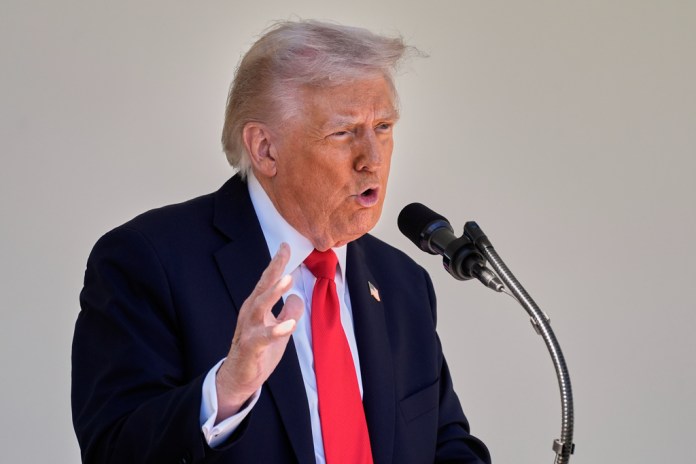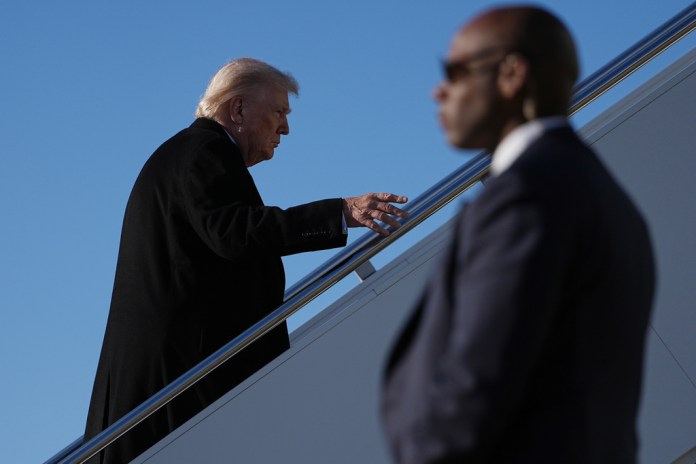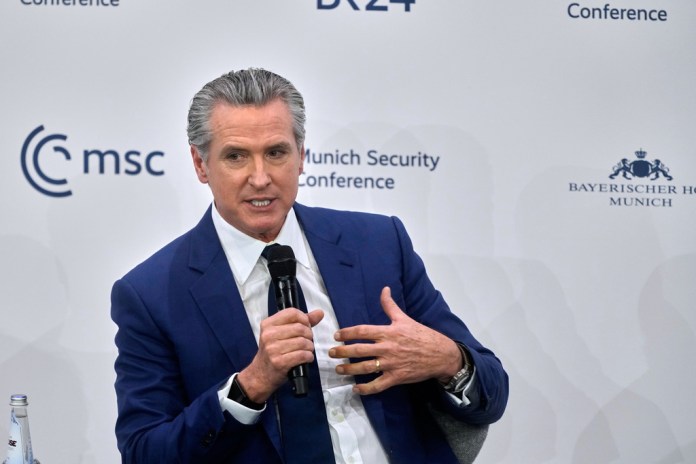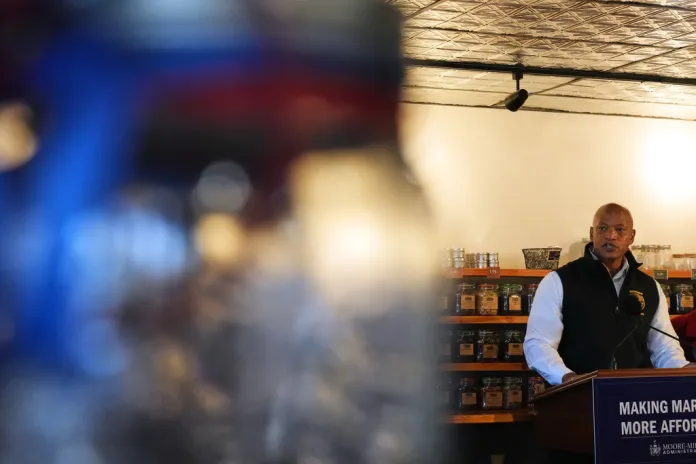Trump Has The Power To Impose Tariffs Via IEEPA
Teh article discusses the legal debate over whether the president has the authority to impose tariffs under the International Emergency economic Powers Act (IEEPA). While plaintiffs argue that IEEPA does not explicitly mention tariffs, the government contends that the statute’s broad language empowering the president to “regulate… importation” inherently includes tariff powers. Citing past precedent and Supreme Court rulings, the article explains that tariffs have long been recognized as a primary method of regulating commerce. It further argues that if the president can fully prohibit imports, then imposing tariffs-a lesser form of regulation-must also be within his authority.the piece contrasts tariffs with embargoes and quotas, highlighting tariffs’ advantages: unlike embargoes, which are extreme and potentially destabilizing, tariffs are more flexible and peaceful; unlike quotas, tariffs generate revenue for the U.S. Treasury and are harder to evade. the article supports the Trump management’s use of tariffs under IEEPA as legally sound and essential for protecting U.S. economic and national security interests.
Tariffs are the most flexible, peaceful, and effective policy instrument to regulate importation. That’s the economic, diplomatic, and common-sense context as the Supreme Court considers whether presidents have the authority to use tariffs under the International Emergency Economic Powers Act (IEEPA).
The plaintiffs assert IEEPA can’t be stretched to include tariffs because, although IEEPA empowers the president to “regulate … importation” of property in an emergency, it makes no mention of the word “tariffs.”
Rejecting this argument, Solicitor General John Sauer cites Soto v. United States (2025), where the court explicitly rejected the proposition that Congress when delegating specific authorities needs to state its intent in a particular way or use “magic words.” In the same manner for IEEPA, Congress need not use any particular vocabulary — “tariff,” “duty,” or “tax” — to delegate those powers; context and purpose suffice. In this context, Congress’s aim was to arm the president with an expansive list of emergency economic weapons, not to catalog every tool by name.
Oral arguments earlier this month explored the plaintiff’s logic gap: How could a president bar all imports but not impose even a 1 percent tariff? The government’s answer: To “regulate … importation” must naturally include tariffs because a tariff is the quintessential means of controlling imports.
History and Precedent
Indeed, tariffs have been understood as one means of regulating commerce since the founding. In making this argument, Sauer echoed Chief Justice John Marshall’s reasoning in Gibbons v. Ogden (1824), where Marshall noted that duties are often “imposed … with a view to the regulation of commerce.”
The context in which the words “regulate… importation” are found only underscores this long-held understanding. Under IEEPA, the president’s power expressly includes the authority to “prohibit” imports in an emergency. It logically follows that if the president may wield the greater power to prohibit trade altogether, he must also hold the lesser power to moderate it through a tariff.
Precedent supports this view. In Federal Energy Administration v. Algonquin SNG (1976), the court interpreted the phrase “adjust imports” in the Trade Expansion Act to include “monetary exactions — i.e., license fees and duties.” Tariffs, the government argues, represent another such exaction — tools to adjust trade behavior, not to raise revenue.
Across both their petition and oral argument, the plaintiffs acknowledge that IEEPA’s verbs authorize embargoes, quotas, and asset freezes — none of which appear in the statute. Their case hinges solely on the absence of “tariff” or “duty.” Yet they still concede that the president may restrict trade through these very measures. Both sides therefore accept that IEEPA covers many unlisted instruments — the dispute is simply whether tariffs are one of them.
Of further note, several of IEEPA’s verbs reinforce tariff authority. The words “regulate … importation” naturally encompass tariffs — the most traditional means of controlling trade flows. Likewise, the verbs “prevent” and “prohibit” support tariff authority. As Sauer told the court, it would be “particularly anomalous” if the president could “prohibit” all steel imports but not prevent their flood into U.S. markets through a tariff.
Extremes of Embargoes
In short, that’s the legal debate. The broader diplomatic, economic, and common-sense context, however, is equally instructive.
Consider that the “greater” authority under IEEPA — as noted by Sauer — is the power to impose a total ban: to “block,” “nullify,” or “void” the importation of goods, the very verbs Congress placed at the top of the statute’s hierarchy. Embargoes sit squarely within this category — they are simply the most extreme form of a total ban. Yet, history makes clear: embargoes are the nuclear option of economic statecraft — powerful enough to start wars, and far too destructive to be the only lawful means of regulation.
For example, Thomas Jefferson’s Embargo Act of 1807, meant to pressure Britain and France during the Napoleonic Wars, helped precipitate the War of 1812. The U.S. oil and steel embargoes on Japan in 1941, designed to deter aggression in Asia, instead helped trigger Pearl Harbor. Now imagine an embargo on China — America’s biggest source of trade deficits. The global shock might be swift, the consequences unpredictable, the risks enormous.
Benefits of Tariffs over Quotas
What, to say then, about a partial ban like a quota, which the plaintiffs seem to acknowledge as legal? To economists, quotas and tariffs are actually functional equivalents: any quota that caps the quantity of imports has, at least in theory, a corresponding tariff that achieves the same level of regulated imports. Yet economists have long acknowledged that quotas are inferior to tariffs in two crucial respects.
First, distributionally, tariffs channel incidental revenue to the United States Treasury, while quotas transfer those gains abroad. Specifically, foreign producers capture the “quota rents” — the extra profits earned from selling into a restricted U.S. market; and that quota windfall is exactly why foreign governments consistently lobby to replace tariffs with quotas: foreigners benefit, both economically and politically.
A textbook case is Japan’s so-called voluntary export restraints in the 1980s, which limited Japanese auto exports to the U.S. These voluntary quotas raised prices, enriched Japanese automakers, and left American consumers footing the bill — precisely the opposite of what an emergency tariff would accomplish.
Second, once the initial quota is filled, goods often enter indirectly through third countries or via misclassification, re-routing, or assembly operations designed to evade the numerical cap. The result of such “quota leak” is that the intended level of import restriction erodes quickly, while the administrative burden of enforcement skyrockets. Tariffs, by contrast, apply uniformly at the border, are harder to evade, and sustain diplomatic leverage for as long as the underlying conduct persists.
As President Donald Trump has warned, “If a President is not allowed to use tariffs, we will be at a major disadvantage against all other Countries throughout the World… we would be defenseless.” This is because under the unfair rules of the World Trade Organization, every one of America’s trading partners is free to — and most do — impose tariffs on the U.S. far higher than those we charge them.
In the end, this case is about whether the United States can continue to defend its economic and national security interests with the most flexible and peaceful instrument available to regulate imports — a tariff — rather than being forced into the extremes of embargoes and bans or the inferior means of quotas. Legal precedent, diplomatic equilibrium, economic logic, and common sense all point in the same direction: the Trump administration’s tariffs under IEEPA are well supported by statutory and constitutional authority.
Peter Navarro is the White House senior counselor for trade and manufacturing.
" Conservative News Daily does not always share or support the views and opinions expressed here; they are just those of the writer."




